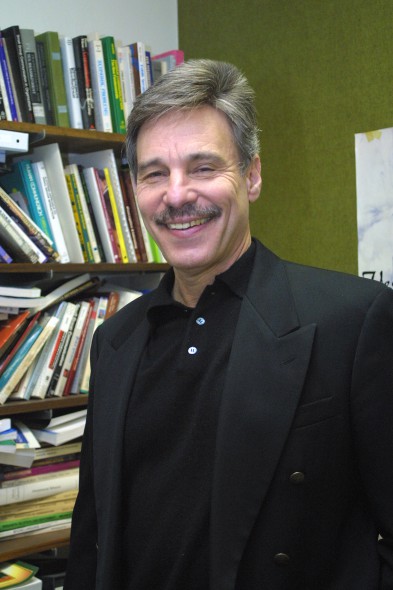Marquette communication professor earns Fulbright award
Dr. Robert Shuter will also present research on the ‘distracted student’
MILWAUKEE – Dr. Robert Shuter, professor emeritus of communication studies in the Diederich College of Communication at Marquette University, has been granted a Fulbright Specialist award to share his expertise at the Hong Kong Baptist University School of Communication for October 2015.
An internationally renowned scholar in the area of intercultural communication, Shuter will introduce the Hong Kong Baptist School of Communication to his newest research and teaching specialty, intercultural new media studies – a discipline he led the development of in 2010.
“This Fulbright is not only a great honor, but it is also an wonderful opportunity for me as an intercultural communication researcher to introduce one of the leading communication schools in Asia to this exciting new area of study,” Shuter said. “As a consultant in the School of Communication, I will conduct various workshops and lectures for students, faculty and administrators on ways they can integrate intercultural new media studies into their curriculum and research agenda.”
In 2011, Shuter launched the Center for Intercultural New Media Research, which now boasts 308 research associates in 46 countries representing more than 200 universities. During his time at Hong Kong Baptist, he will explore establishing the center’s East Asian branch at the School of Communication.
New study looks at students’ digital behavior in university classes
Shuter, whose early research into digital behavior looked at international text message etiquette, will present his latest competitively selected study on a juried panel at the annual conference of the National Communication Association in November.
The paper, The Influence of Cultural Values on U.S. and Danish Students’ Digital Behavior in University Classes, which Shuter co-wrote with Dr. Pauline Cheong and Yashu Chen of Arizona State University’s Hugh Downs School of Human Communication, addresses whether university students think that smartphones and laptops used in class are a distraction to learning, attention and participation, and whether they want these devices managed in class.
In a survey of 544 American students at two U.S. universities and 361 Danish students at one business college in Denmark, Shuter and his co-investigators discovered the following:
- U.S. students use smartphones significantly more in class than do Danish students and send many more messages during class (once to four times per week) than do Danes (once to five times per month). Danish students use their laptops in class significantly more than do U.S. students.
- U.S. and Danish students do not believe that their use of smartphones and laptops in class negatively affects their learning, attention and participation.
- U.S. students want their instructors to set rules for using smartphones and laptops in class and include on syllabi. Danish students are significantly less inclined to have instructors set rules for using smartphones and laptops in class and do not want this on syllabi.
“The findings here are paradoxical,” Shuter said. “That students don’t view the use of smartphones and laptops in class as a distraction appears to be at odds with university professors who, in past research, have found these devices problematic, especially with regard to attention, learning and participation.
“Interestingly, American students’ desire to have instructors set rules for use in class is consistent with the American need for authority and hierarchy in class,” Shuter added. “Danish students’ desire to have no rules is consistent with Danish need for equality in class even between professors and students.”
NOTE: This press release was submitted to Urban Milwaukee and was not written by an Urban Milwaukee writer. While it is believed to be reliable, Urban Milwaukee does not guarantee its accuracy or completeness.
Recent Press Releases by Marquette University
New Marquette Law School Poll finds large majority of Wisconsin voters not yet tuned in to who is running in major 2026 elections
Oct 29th, 2025 by Marquette UniversityNo candidate has established strong position in public favorability in governor, state Supreme Court races; large majorities of voters undecided
New Marquette Law School National Survey Finds Large Majority Think Political Violence is a Big Problem, But With Sharp Partisan Differences
Oct 1st, 2025 by Marquette UniversityAmericans are overall pessimistic on reducing intense political conflict; half of those polled say heated language by leaders makes violence more likely























